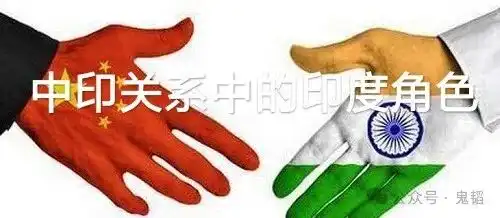India's role in China-India relations and its future direction
India's role in China-India relations
2024 3 22 11:05 Sansi Hall

China-India relations have developed poorly in recent years, especially between China and the West. Relations between the United States have been tense for some time, and China-India relations have become tense. The current increase in conflicts and contradictions in China-India relations is more due to India's political immaturity and India's emotions. It is also determined by India's national positioning, status, role and identity.
India claims to be an international power and an international power, but the political decisions it has made and national political strategies have further demonstrated India's political naivety and immaturity. When it comes to the development of China-India relations, India is more speculative and opportunistic. The future of the development of China-India relations depends on how India positions itself and what role it plays in China-India relations.
1 China-India relations The role of India is the key to the development of China-India relations. The key is how India determines its role and positions its role in China-India relations. China-India relations India has two identities and multiple roles and participates in the development of China-India relations.
First, India's role in China-India relations must be demonstrated in China-India relations as a victim and an equal competitor and partner. If we develop relations with China as a victim, it reflects historical entanglements and historical plots. Regarding historical issues, we will see whether India can put aside history, bravely face reality, face the new international pattern, and strive to adjust itself. Historical sentiments, stabilize relations with China, or be petty, and use historical issues to emotionally create political confrontation.
Second, in China-India relations, India should also show its role in Sino-US relations. Regarding issues between China and the United States, India appears in Sino-US bilateral relations as a busybody, destroyer, speculator and builder. This depends on India's politics, whether India can face reality, whether it can put aside historical issues, and constructively participate in Sino-US relations.
2 India should abandon its historical grievances. This is easy but very difficult for India. Putting aside historical grievances and looking forward, we should look at the development of China-India relations from a long-term perspective and a strategic perspective, rather than based on historical grievances and emotions. Handle China-India relations rationally, rationally and seriously.
Putting aside historical conflicts, the most difficult thing for India is domestic political obstacles, because India's so-called democracy is to gain the interests of political groups and political parties in the name of democracy, and manipulate historical issues to serve politics. This often happens in democratic societies and is also a political means. India's domestic politics makes it impossible for India to transcend historical conflicts, abandon historical conflicts and face the future like China. When China handles its relations with Japan, it transcends history and faces the future. This depends on whether India can do it. Otherwise, India will always be hindered and hindered by historical issues in the development of Sino-Indian relations.
3 India must pragmatically develop its relations with China, change its political stance, narrow view of political history and realistic political illusions, and develop China-India relations realistically and realistically.
India develops its relations with China with speculation and investment behavior. On the issue of the development of China-India relations, because of the long-term use of the border issue to blackmail China and use the border issue to beat China, they are trying to use the border issue to gain so-called domestic political capital.
Sino-Indian relations, Indian speculation and investment are very strong. Even if it develops its relations with China and the United States, India is more about investing and speculating on political behavior, rather than making realistic and rational strategic thinking and strategic shaping based on global political reality and domestic political development needs. India's development of relations with China is more about the use of political parties and political positions, rather than making political strategies based on national interests to develop relations with China.
Sometimes, India needs the Chinese factor to gain benefits on domestic political issues, and uses China issues to win the favor of nationalists to achieve political goals. Use nationalist sentiments and use China-India relations to serve the politics of individuals and political groups.
4 The development of China-India relations is inseparable from the interference of the United States and Western factors. At the same time, there is also political speculation within India. India is a key node in the U.S. Indo-Pacific strategy. At the same time, India is a major country in South Asia and a country in the Indian Ocean. It has territorial disputes with China. At the same time, India also has South Asian ambitions and Indian ambitions in the Indian Ocean.
When it comes to developing relations with the United States, India is more speculative than investing. Because on the China issue, India's investment in the United States harms others but not benefits itself. Because the development of relations between India and the United States is more due to China factors than how important India is to the United States. What is important is China, not India.
